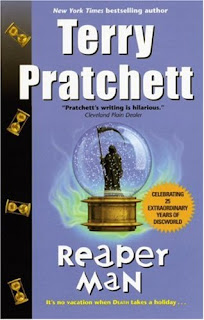Title:
The Finkler Question
Author: Howard Jacobsen
ISBN: 978-1-4088-0910-5
Published: Bloomsbury
Date: 2010
Book
quote:
“It was at that moment the sum total of his philosophy. Fuck it.”
The quote above it completely atypical of
the diction and style of the book, but is in essence what the whole exposition
boils down to. After exploring every conceivable angle of the Jewish Question,
in the end we are presented with no answers, no guides, no opinion that seems
‘better’ than another. As far as the issue of Jewish identity and place in the
world goes, Jacobson proffers no ‘solution’. Except perhaps that there is no solution and the question itself
is inherent in Jewish existence.
The book is ostentatiously ‘literary’ in
that it has virtually no plot, glacial progression and its whole soul is
dedicated to stripping itself so bare it’s turned inside out several times like
a distressed overcoat in the hands of a toddler. It is a delightful, funny
read, and shines a kind and reflective light over proceedings; rather like the
character of Libor: an old Czechoslovak Jew who has recently been widowed at
the time the novel opens.
Reviewers have called it ‘blistering’,
‘furious’ and ‘terrifying’. If to be unashamed and honest is such, I guess it
is.
The setting is London, and the main
protagonists are three friends: Treslove, Finkler, and Libor. The latter two
are Jews, the first is not. Then Treslove has an epiphany and decides he, too,
is really Jewish. Then he probably decides he is probably not. And the story
ends.
Howard uses Treslove’s reasoning as to why
he ‘must’ be Jewish and the character’s personality as one of the tools to
discuss the essence of ‘Jewishness’.
The only authorial opinion that seems to
emerge from the seething discussions is that men are confused, women get on
with life. This is not so much stated as actioned – in fact it’s so unbalanced
a ratio of women who know what they’re doing to men who don’t you’d think
there’s something going on. Tyler is Finkler’s (recently deceased) wife, who
continually cuts through Finkler’s philosophical crap with near-spiteful
brutality – yet puts up with it. Malkie is Libor’s (also recently deceased)
wife who was an incomparable beauty, a talented musician, of high-class
ancestry but of even better taste, who staved off the pathos of dying by ‘talking dirty’ and who chose
plebeian Libor over Horowitz because he made her laugh. Hepzebah is Treslove’s
Nirvana of a woman who mothers him and for a while washes away his obsession
with death and sorrow in a wave of earthy gusto and joi de vivre. Even
Treslove’s past loves, the waif-like women he picks and adores because of their
insubstantial fragility, all despair of him and leave him because of his
fatuous fascination with some operatic, fatalistic view of life and romance.
Tamara Krausz out-philosophers Finkler the philosopher, driving him mad with a
mix of jealousy and admiration that morphs into a rather violent sexual
fascination. There seems to be not a cleaning-lady in the book who doesn’t
possess more common sense than the ‘best’ of the men.
And yet for all the enjoyable read, it
leaves the reader disappointed with the ‘not a bang but a whimper’ ending.
Perhaps it’s churlish to complain of this as it’s no doubt part of the message:
nothing changes, there are no answers, the dog returns to his vomit. But it’s
also a novel, and stories need structure, and that includes a head and a tail.
Great writing, engaging humour, wonderful
insight and honesty. No plot, no resolution, no ending and barely any beginning
that’s not a morass of the rest of the book. In all, I’d give it four
moose-hoofs up out of five. Cool book but not quite sure I’d have given it the
Booker - as someone else did.








